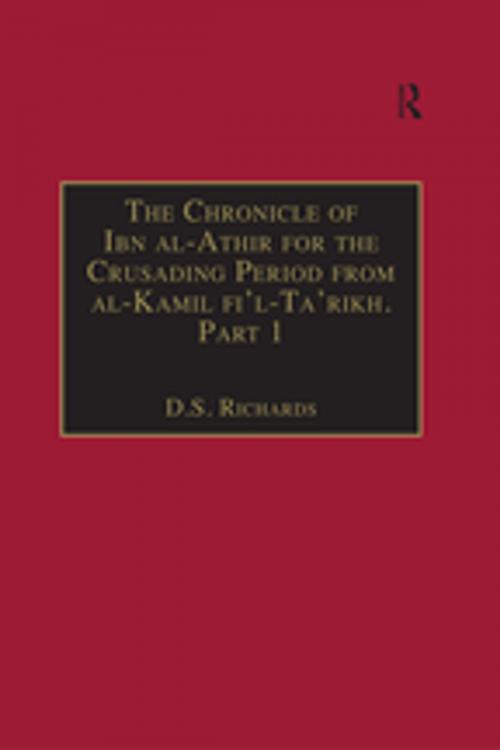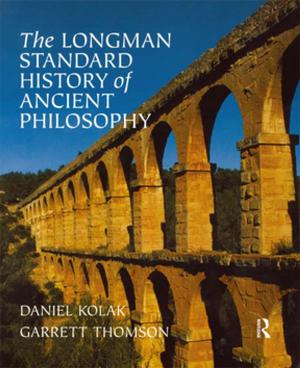The Chronicle of Ibn al-Athir for the Crusading Period from al-Kamil fi'l-Ta'rikh. Part 1
The Years 491–541/1097–1146: The Coming of the Franks and the Muslim Response
Nonfiction, History| Author: | Taylor and Francis | ISBN: | 9781351892872 |
| Publisher: | Taylor and Francis | Publication: | March 2, 2017 |
| Imprint: | Routledge | Language: | English |
| Author: | Taylor and Francis |
| ISBN: | 9781351892872 |
| Publisher: | Taylor and Francis |
| Publication: | March 2, 2017 |
| Imprint: | Routledge |
| Language: | English |
The Chronicle of Ibn al-Athir (1160-1233AD), entitled 'al-Kamil fi'l-Ta'rikh', is one of the outstanding sources for the history of the mediaeval world. It covers the whole sweep of Islamic history almost up to the death of its author and, with the sources available to him, he attempted to embrace the widest geographical spread; events in Iraq, Iran and further East run in counterpoint with those involving North Africa and Spain. From the time of the arrival of the Crusaders in the Levant, their activities and the Muslim response become the focus of the work. This part covers the establishment of the Crusader states and the initial weak and divided response of Muslim regimes in the area, the moribund Fatimid caliphate in Egypt and competing emirs in Syria and Mesopotamia. The strengthening of the Muslim reaction is typified by the career of Zanki, which also illustrates the important links with events in the orbit of the Abbasid caliphate and the Saljuq sultanate.
The Chronicle of Ibn al-Athir (1160-1233AD), entitled 'al-Kamil fi'l-Ta'rikh', is one of the outstanding sources for the history of the mediaeval world. It covers the whole sweep of Islamic history almost up to the death of its author and, with the sources available to him, he attempted to embrace the widest geographical spread; events in Iraq, Iran and further East run in counterpoint with those involving North Africa and Spain. From the time of the arrival of the Crusaders in the Levant, their activities and the Muslim response become the focus of the work. This part covers the establishment of the Crusader states and the initial weak and divided response of Muslim regimes in the area, the moribund Fatimid caliphate in Egypt and competing emirs in Syria and Mesopotamia. The strengthening of the Muslim reaction is typified by the career of Zanki, which also illustrates the important links with events in the orbit of the Abbasid caliphate and the Saljuq sultanate.















